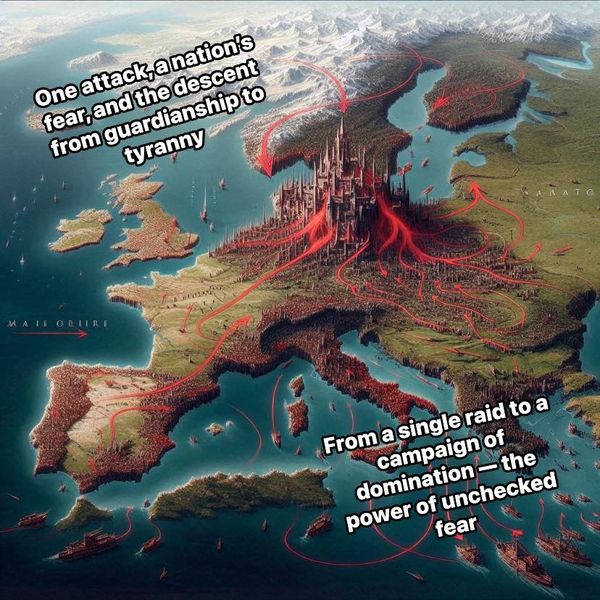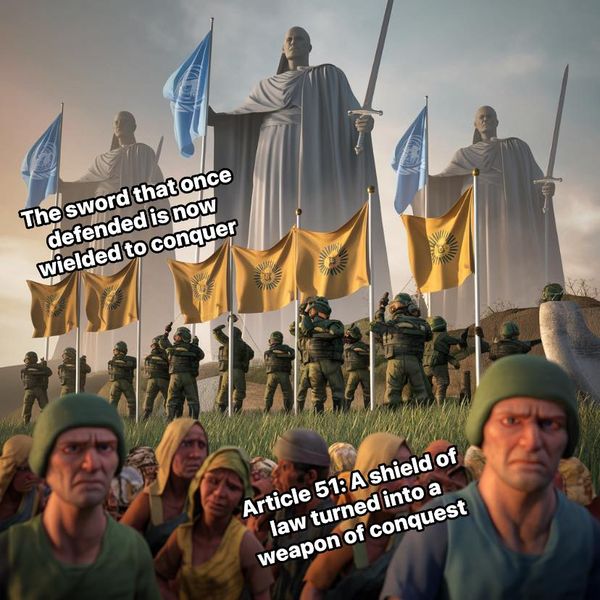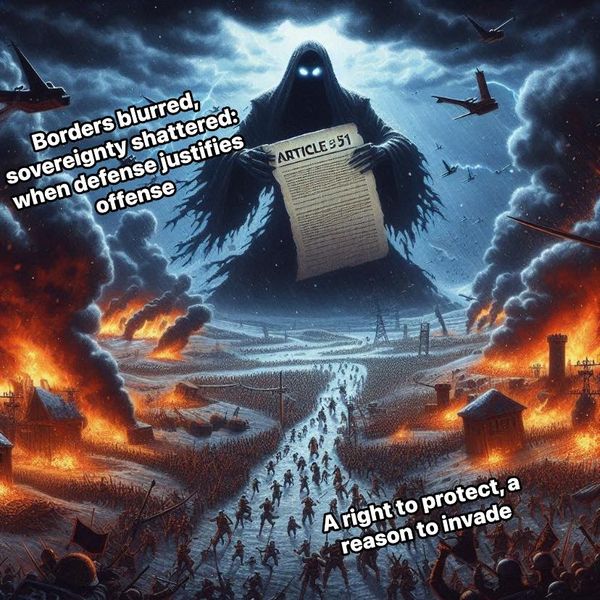
In a distant land, the nation of Valoria stood proudly on its well-defined borders. For decades, it had maintained peaceful relations with its neighboring countries, abiding by international laws and valuing the principles of sovereignty and mutual respect. Valoria’s people had grown accustomed to a life of security, with their leaders committed to safeguarding their nation’s integrity. However, everything changed one fateful day when a small rebel group from a neighboring nation launched an attack on a Valorian outpost near the border. The attack, though isolated and contained swiftly, struck deep at the heart of Valoria’s leadership. The damage was minimal, but the fear it instilled was enormous.
Valoria’s leaders, with Article 51 of the United Nations Charter in mind, swiftly invoked their right to self-defense. Citing this isolated incident as an act of war, they moved not just to retaliate against the attackers but to secure all territories bordering their southern frontier. The original purpose of defending their citizens from further aggression quickly evolved into a strategy of preemptive strikes. In the name of safeguarding national security, they pushed their military presence deep into neighboring lands, occupying villages and erecting outposts. Every minor threat or even rumor of potential hostility was cited as further justification for continued expansion.
As the months passed, Valoria’s leaders began to employ language that reframed the conflict. “We are not just defending our borders,” they proclaimed, “we are ensuring the stability of the entire region.” The single raid, which should have been an isolated event, was exaggerated into a grand narrative — a perpetual threat looming over the nation. What had begun as a defensive maneuver transformed into a campaign for control. The shield of self-defense became a sword of aggression, cutting through villages and sweeping aside the sovereignty of smaller states.

To the Valorian people, the campaign was justified; they were safeguarding their future, protecting their families, and securing peace — or so they were led to believe. Every town annexed, every territory captured, was heralded as a necessary move against an imagined tide of invasions. Leaders and generals spoke of “stabilizing the region,” but what they were doing was building an empire. The right of self-defense, a principle meant to protect, was twisted into a banner for conquest.
The international community watched warily. Neighboring nations, now living under the shadow of Valorian might, pleaded for intervention. Yet, every time they raised a protest, Valoria’s leaders pointed to the original attack and reiterated their commitment to self-defense, arguing that they were simply ensuring that such aggression would never happen again. They cited Article 51 again and again, using it as an impenetrable shield against condemnation.
But in their haste to expand, Valoria failed to see the cracks forming in its justification. Just as generalizations in thought can blur the nuances of reality, the generalization of one isolated incident into a perpetual threat masked the truth: the more they expanded, the more vulnerable they became. Resources were stretched thin, border skirmishes multiplied, and discontent grew both within and outside their new territories. What began as a strategy to secure their borders now left them exposed to conflicts on all fronts.

Ultimately, Valoria’s tale serves as a stark reminder of how easy it is for a nation to fall into the trap of overextending a right meant for defense. Like a fortress built on shifting sands, their policies, based on the shaky foundation of exaggerated threats and overgeneralization, began to crumble. As the world looked on, it became clear that the true battle Valoria faced was not against external enemies, but against the very narrative of self-defense they had used to justify their unchecked ambitions.
In the end, Valoria’s tragedy was that it mistook a gust of wind for a brewing storm. It fortified its borders against imaginary threats and, in doing so, unleashed a real tempest of conflict that consumed its ideals, its neighbors, and ultimately, its own peace.

